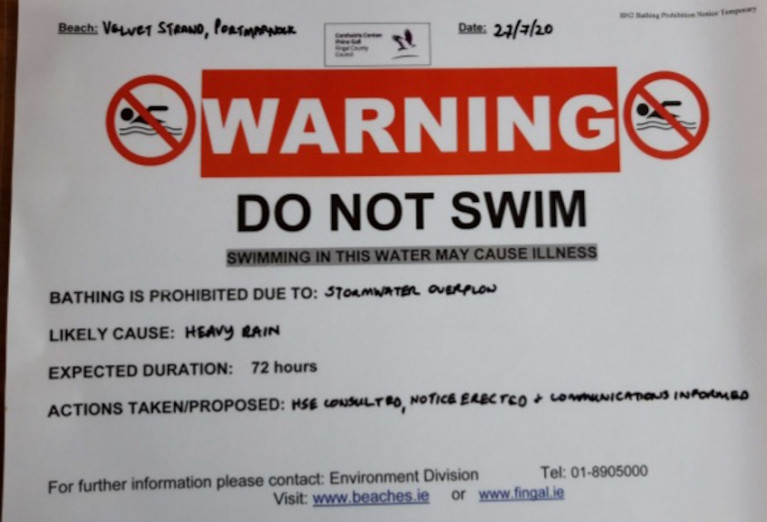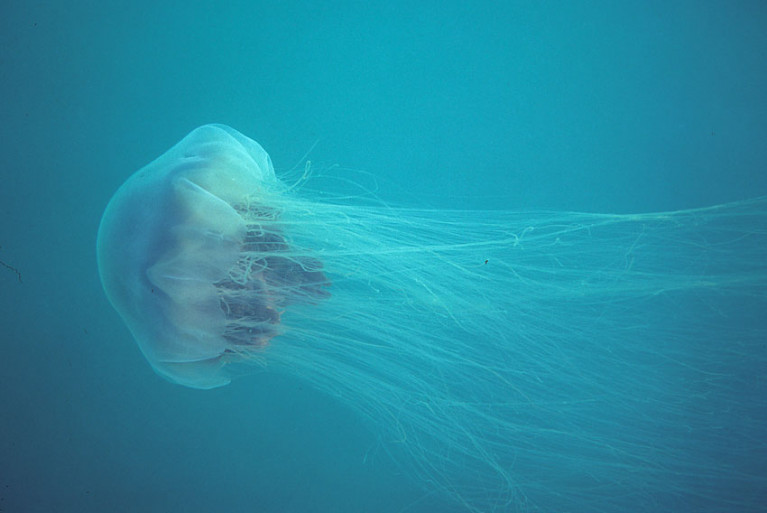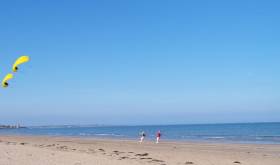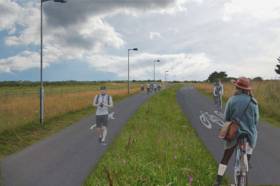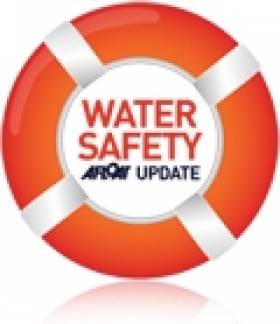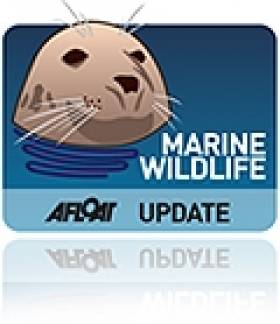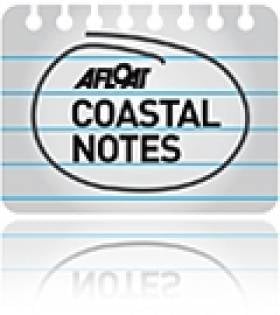Displaying items by tag: Portmarnock
‘Do Not Swim’ Notice Issued For Portmarnock’s Velvet Strand
Fingal Council Council has issued a ‘do not swim’ notice for Velvet Strand in Portmarnock after a wastewater overflow this morning, Monday 27 July.
The overflow at a nearby pumping station followed heavy rainfall and resulted in a direct discharge at the popular North Co Dublin beach.
A scheduled sample was due to be taken today but the beach will remain closed to swimming until at least this Thursday 30 July.
Do not Swim Notice Velvet Strand for 72 hours
— FingalCountyCouncil (@Fingalcoco) July 27, 2020
An overflow at a pumping station occurred this morning following heavy rainfall which resulted in a direct discharge to Velvet Strand, Portmarnock.
Please see Prohibition Do not Swim Notice. A scheduled sample is due to be taken today pic.twitter.com/zhq5aiPTOe
Beachgoers on the East Coast beware: lion’s mane jellyfish have been sighted in the waters off North Dublin, as DublinLive reports.
The venomous marine wildlife — which has previously prompted warnings for Dublin beaches — was recently spotted at Dollymount and in Portmarnock, where the carcass of an injured seal also washed up in recent days.
Lion’s mane jellyfish carry a painful and potentially lethal sting, even when washed up on the beach.
Two years ago a spate of incidents saw a number of swimmers hospitalised after being stung by lion’s manes in Galway Bay.
A member of the US Coast Guard and three of his relatives have been praised by the father of a young girl rescued after she was swept out to sea from a Dublin beach.
As The Irish Times reports, Walter Butler and his relations Eoghan Butler, Declan Butler and Alex Thomson leapt into action when they heard screams for help and saw the girl on a “pink floaty” off Portmarnock beach on Monday afternoon (22 July).
Butler remained on the beach ready to provide casualty care while the others swam out to the girl, who was swept some distance from shore and at one point was struggling to stay afloat after coming off her inflatable.
“We have all been swimming competitively since we were six or seven years old so to say we are good swimmers is an understatement,” said Butler — who noted that it still took half an hour for his relatives to reach the girl and swim her back to the beach, where paramedics and her relieved father were waiting.
The dangers of using inflatables at the seaside were highlighted again just hours later, when Larne RNLI launched yesterday afternoon (Tuesday 23 July) to a report of three people being carried out to sea on inflatable toys in Browns Bay.
At the scene, the volunteer crew found a small fishing vessel had already taken one casualty on board, and they look over to bring the remaining two onto the lifeboat.
RNLI volunteer helm Barry Kirkpatrick said: “We advise you not to use inflatables at the beach as offshore winds can easily sweep you off the shore in a very quick space of time.
“If you do get into difficulty or see anyone else in difficulty, please remember to call 999 or 112 and ask for the coastguard.”
Belfast Coastguard has warned that a number of children have been blown out to sea on inflatable toys in recent days.
“Please remember the safest place for children to play with these death traps is in the back garden,” a spokesperson said.
Approval For Coastal Cycle Path In North Dublin
#Coastal - Planning permission has been granted for a new coastal cycle and walking path between Baldoyle and Portmarnock, as The Irish Times reports.
The new 1.8km path, which has much local support, will take cyclists off a narrow country road running between the two North Dublin suburbs.
It will also be in close proximity to the Sutton–Clontarf section of the S2S cycle route, and may be extended to both Sutton and Malahide in future.
The Irish Times has more on the story HERE.
'Human Foot' Washes Up On Portmarnock Beach
#Portmarnock - An investigation is under way after the discovery of a severed human foot on Portmarnock Beach last week.
According to The Irish Times, the "skeletal remains" were found by a walker on the north Co Dublin beach on 20 October.
Gardaí are not currently treating the case as suspicious.
The news comes a fortnight after reports of a body part seen in the water near Ardnacrusha power station in Co Clare.
A search operation in the surrounding area was stood down after two days when no clues were found.
This Friday Last Day for 2012 Fingal Lifeguard Applicants
#WATER SAFETY - This coming Friday 30 March is the closing date for applications for Fingal County Council beach lifeguards for the 2012 summer season.
Lifeguard cover will be provided on Fingal beaches on weekdays and weekends 11am to 7pm from 2 July till the last week of August, depending on weather and staff levels.
Beaches and bathing places scheduled to be guarded this summer include Balbriggan (front beach), Skerries South, Loughskinny, Rush North and South Shores, Portrane (Tower Bay and The Brook), Donabate, Malahide, Portmarnock, Sutton (Burrow Road) and Howth (Claremount).
Applicants must be not less than 17 years of age on 1 May 2012. Application forms are available to download HERE.
Bottlenose Dolphin Pod Seen Again Off Dublin Coast
#MARINE WILDLIFE - They were thought to have disappeared from the east coast in October after delighting wildlife enthusiasts in Dublin and Wicklow.
But concerns that one of the group had died were swept side when the pod of three bottlenose dolphins was once again spotted off Killiney recently.
The Wicklow People reports that the two adults and one juvenile reappeared almost two weeks ago, and have been seen daily "putting on great displays of leaping, breaching, and tail slapping".
Fears were that tragedy had befallen the group when two bottlenoses were seen off Skerries and Balbriggan in late October, and a juvenile was found dead in Portmarnock shortly after.
As previously reported on Afloat.ie, some 200 sightings of the dolphins between Dalkey Island and Wicklow town in recent months were validated by the Irish Whale and Dolphin Group (IWDG).
According to the IWDG, evidence suggests that the pod is now resident off the east coast.
The Wicklow People has more on the story HERE.
Wexford Club Honoured in Coastcare Merit Awards
Wexford Sub Aqua Club has been recognised for its commitment to the environment in an awards ceremony in Dublin last week.
The Wexford People reports that Minister of State Fergus O'Dowd presented the club with An Taisce's Coastguard Initiative of the Year Award for its work in cleaning up the beaches and waters around Kilmore Quay.
The club was one of many organisations and volunteers throughout Ireland recognised by An Taisce's Coastcare Merit Awards.
Among them were the Portmarnock Community Coastcare Group and Malahide resident Philip Lynch, who was rewarded for his efforts in protecting the north Dublin town's coastline.



























